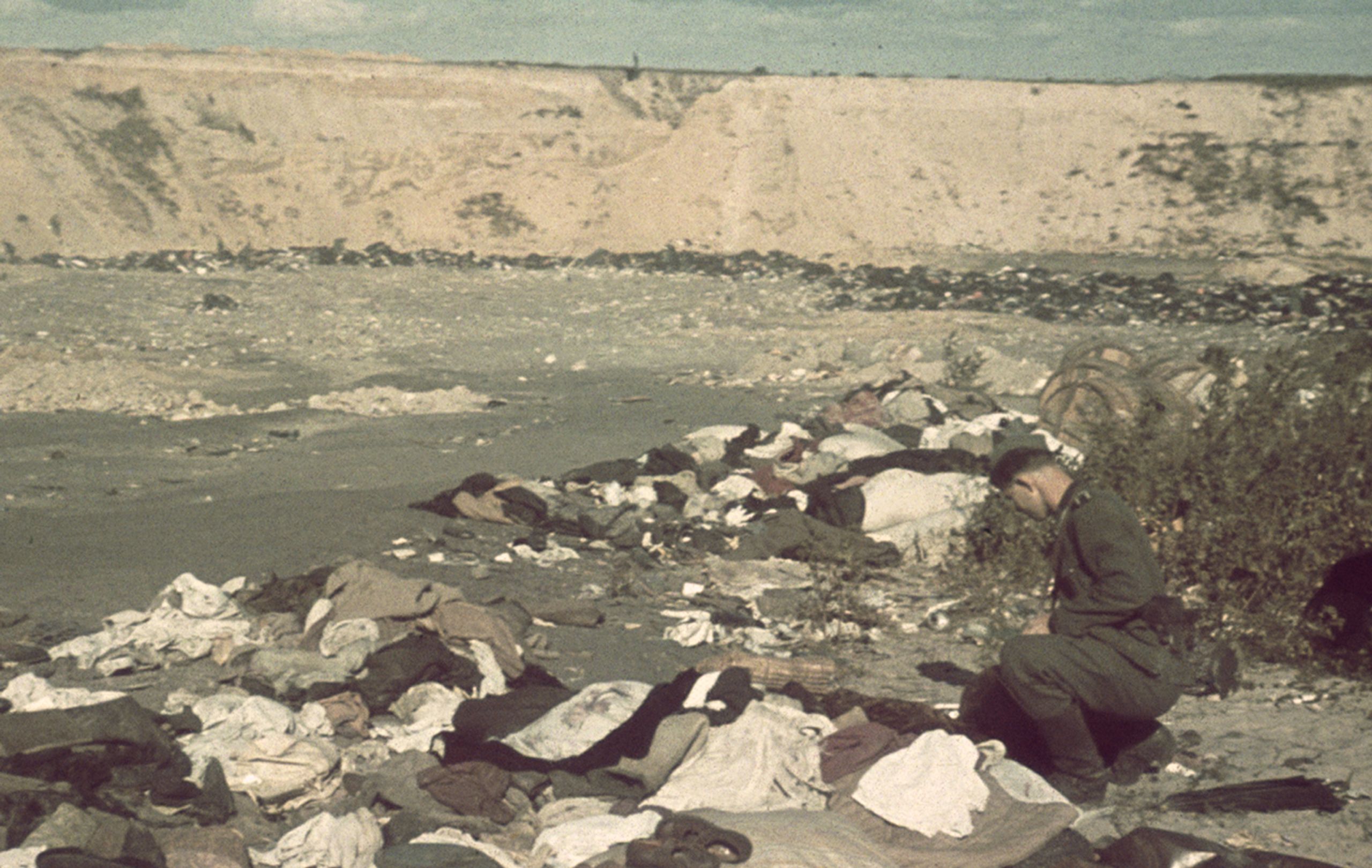Babi Yar is a ravine in Kiev. Its bloody past has afforded it a place in the darkest days of history. Over the course of the 29th and 30th September, 1941, approximately 33,771 Jews were massacred by the occupying German forces. Their bodies dumped and covered with earth in the deep gorge. In the months which followed, it is estimated that over 100,000 residents of the Ukrainian capital were murdered, their lifeless bodies tossed in the pit.
The Holocaust was far and away the blackest moment in modern times. History tends to record events and facts, focussing on the biggest and most tragic occurrences within any period. When we learn about this era the tendency is to focus on the deaths without placing them within the wider historical narrative of the time. Sergei Loznitsa aims to address this in his new documentary, Babi Yar. Context.
Using archive footage from public and private sources across Germany, Russia and Ukraine, Babi Yar. Context. reveals the events leading up to, during and which followed those fateful days at the beginning of the 1940s. It is not an easy film to watch at times, and Loznitsa doesn’t shy away from showing the depths of human evil. There’s a wonderful array of film on show, but perhaps in wanting to provide as much detail as possible there is a little too much. Having said that, It’s a fascinating watch.
Babi Yar. Context screens at London Film Festival.














No Comment